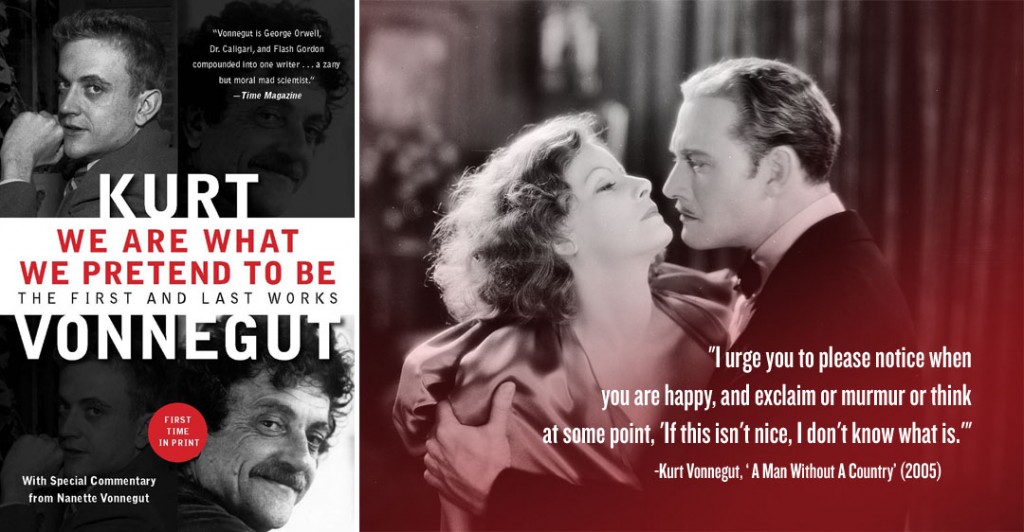He’s been called “America’s finest black-humorist” by The Atlantic Monthly, but above all else Kurt Vonnegut (1922-2007) was one of the most influential writers of the 20th century. Now his first and last works come together for the first time in print, in a collection aptly titled after his famous phrase, We Are What We Pretend To Be.
Written to be sold under the pseudonym of “Mark Harvey,” Basic Training was never published in Kurt Vonnegut’s lifetime. It appears to have been written in the late 1940s and is therefore Vonnegut’s first ever novella. It is a bitter, profoundly disenchanted story that satirizes the military, authoritarianism, gender relationships, parenthood and most of the assumed mid-century myths of the family. Haley Brandon, the adolescent protagonist, comes to the farm of his relative, the old crazy who insists upon being called The General, to learn to be a straight-shooting American. Haley’s only means of survival will lead him to unflagging defiance of the General’s deranged (but oh so American, oh so military) values. This story and its thirtyish author were no friends of the milieu to which the slick magazines’ advertisers were pitching their products.
When Vonnegut passed away in 2007, he left his last novel unfinished. Entitled If God Were Alive Today, this last work is a brutal satire on societal ignorance and carefree denial of the world’s major problems. Protagonist Gil Berman is a middle-aged college lecturer and self-declared stand-up comedian who enjoys cracking jokes in front of a college audience while societal dependence on fossil fuels has led to the apocalypse. Described by Vonnegut as, “the stand-up comedian on Doomsday,” Gil is a character formed from Vonnegut’s own rich experiences living in a reality Vonnegut himself considered inevitable.
Along with the two works of fiction, Vonnegut’s daughter, Nanette shares reminiscences about her father and commentary on these two works—both exclusive to this edition. In this fiction collection, published in print for the first time, exist Vonnegut’s grand themes: trust no one, trust nothing; and the only constants are absurdity and resignation, which themselves cannot protect us from the void but might divert.
Maria Popova of Brain Pickings recently pointed to one revealing section in the book where Vonnegut’s daughter recalls her conversations with her dad about love: “Most times I’d find my father in a very receptive mood to my prying questions, like ‘How many times have you been in love?’ His answer was instantaneous, and he held up three long fingers. I was relieved to hear my mother was one of them. His explanation of the merits and failures of each true love struck me as completely fair. Whether or not my mother really did not love him enough did not matter; he felt that love was lacking, and I believed him.” Nanette Vonnegut would later confirm in an interview that her father steadfastly believed in the idea that we only get three shots at love in our lifetime.
Whether you agree with Kurt’s thesis of three life loves or not, there’s no denying his staggering contributions to the literary world. You can pick up your own copy of We Are What We Pretend To Be: The First and Last Works via Amazon.


